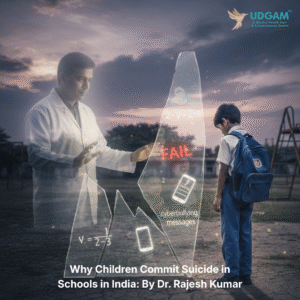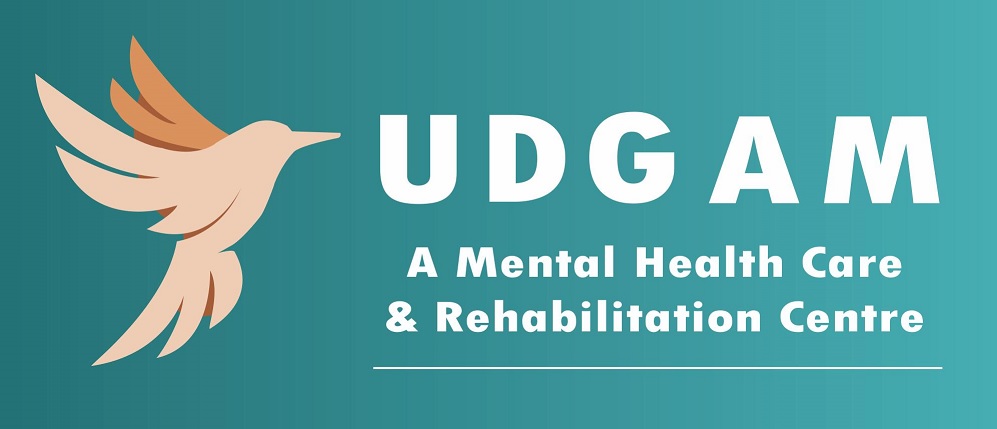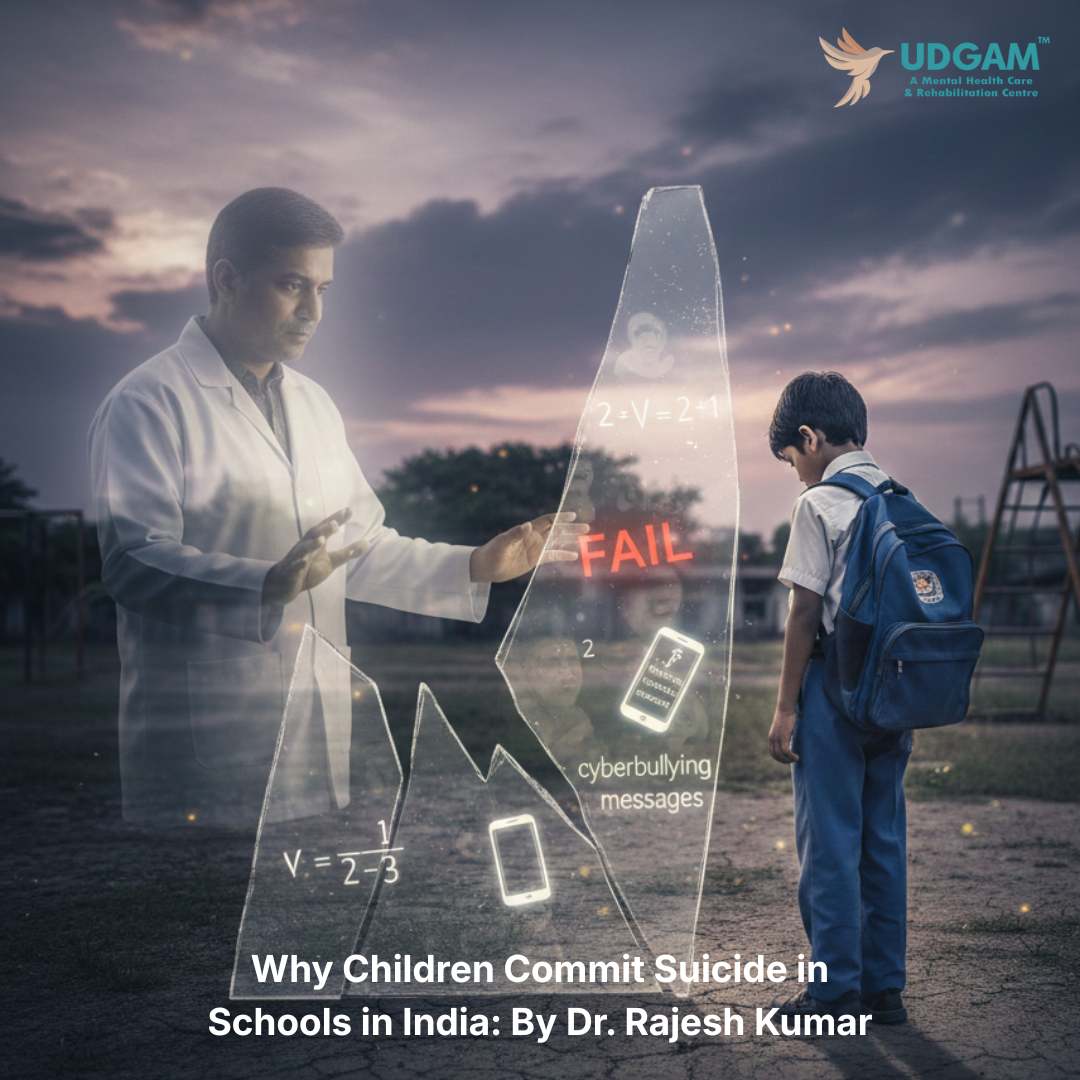
Why Children Commit Suicide in Schools in India: A Psychiatrist’s Perspective
By Dr. Rajesh Kumar, Psychiatrist – Udgam Mental Health Care
Child suicide is one of the most painful and alarming realities emerging in Indian schools today. As a psychiatrist, I have seen how emotional, academic, and social pressures silently overwhelm children who often do not have the tools to cope. Understanding why these tragedies occur is the first step toward preventing them.
1. Extreme Academic Pressure
India’s education system places enormous importance on marks and competition. Many children feel their entire future depends on a single exam. When children fear failure, punishment, or disappointing their parents, stress can turn into hopelessness and despair.
2. Bullying and Social Isolation
Bullying—whether offline or online—continues to be a major cause of emotional pain. Children who face constant teasing, exclusion, or humiliation may start believing they are “not good enough.” Without timely support, this emotional pain becomes unbearable.
3. Lack of Emotional Expression
In many families, children are discouraged from expressing emotions. They are told to “ignore it” or “handle it on their own.” Over time, they suppress feelings and do not learn how to seek help, which increases emotional vulnerability.
4. Family Conflicts and Parental Expectations
A child’s mind is deeply sensitive to the home environment. Parental pressure, frequent fights, comparison with siblings, or harsh criticism can affect a child’s mental health. Some begin blaming themselves for family problems.
5. Undiagnosed Mental Health Conditions
Depression, anxiety, ADHD, or learning difficulties often go unnoticed in children. Instead of receiving support, they are called “lazy” or “weak.” Untreated mental health problems significantly increase the risk of self-harm.
6. Lack of Supportive School Ecosystem
Schools without counsellors, mental health programs, or anti-bullying systems often fail to identify early warning signs. Children need safe, understanding environments where they can openly express concerns.
7. Sudden Triggering Events
A public scolding, disciplinary action, breakup, or sudden academic failure can trigger impulsive decisions in emotionally fragile children. Their developing brains struggle to process intense stress logically.
How Udgam & Dr. Rajesh Kumar Help Children Feel Safe Again
At Udgam Mental Health Care, our goal is simple: to make sure no child feels alone in their struggles.
Dr. Rajesh Kumar works closely with children and parents to understand what the child is truly feeling. Through gentle conversations, child-friendly therapy, and detailed assessments, he helps identify issues early—whether it’s stress, anxiety, ADHD, or emotional trauma.
Udgam provides:
- Child counselling & therapy
- Support for parents
- Behavioural and emotional guidance
- School programs on bullying, stress, and mental health
- Crisis support for children who feel emotionally unsafe
Every child deserves love, patience, and someone who will listen without judgement. Together—with parents, schools, and mental health support, we can save lives and help children grow with confidence, hope, and happiness.
👉 Send us a message to book one-to-one psychiatrist counselling with Dr. Rajesh Kumar at Udgam Mental Health Care.




